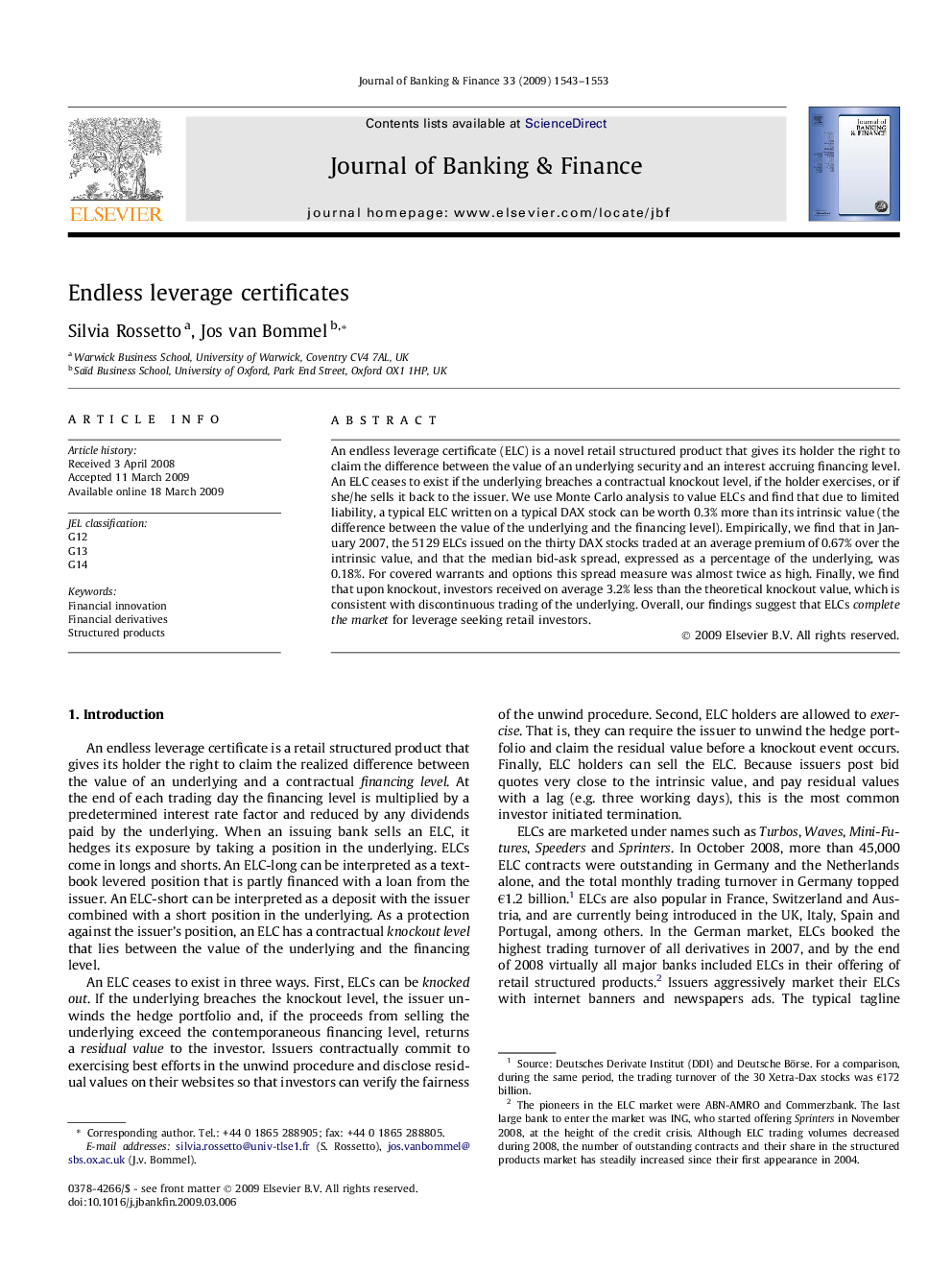| Article ID | Journal | Published Year | Pages | File Type |
|---|---|---|---|---|
| 5090626 | Journal of Banking & Finance | 2009 | 11 Pages |
Abstract
An endless leverage certificate (ELC) is a novel retail structured product that gives its holder the right to claim the difference between the value of an underlying security and an interest accruing financing level. An ELC ceases to exist if the underlying breaches a contractual knockout level, if the holder exercises, or if she/he sells it back to the issuer. We use Monte Carlo analysis to value ELCs and find that due to limited liability, a typical ELC written on a typical DAX stock can be worth 0.3% more than its intrinsic value (the difference between the value of the underlying and the financing level). Empirically, we find that in January 2007, the 5129 ELCs issued on the thirty DAX stocks traded at an average premium of 0.67% over the intrinsic value, and that the median bid-ask spread, expressed as a percentage of the underlying, was 0.18%. For covered warrants and options this spread measure was almost twice as high. Finally, we find that upon knockout, investors received on average 3.2% less than the theoretical knockout value, which is consistent with discontinuous trading of the underlying. Overall, our findings suggest that ELCs complete the market for leverage seeking retail investors.
Related Topics
Social Sciences and Humanities
Economics, Econometrics and Finance
Economics and Econometrics
Authors
Silvia Rossetto, Jos van Bommel,
